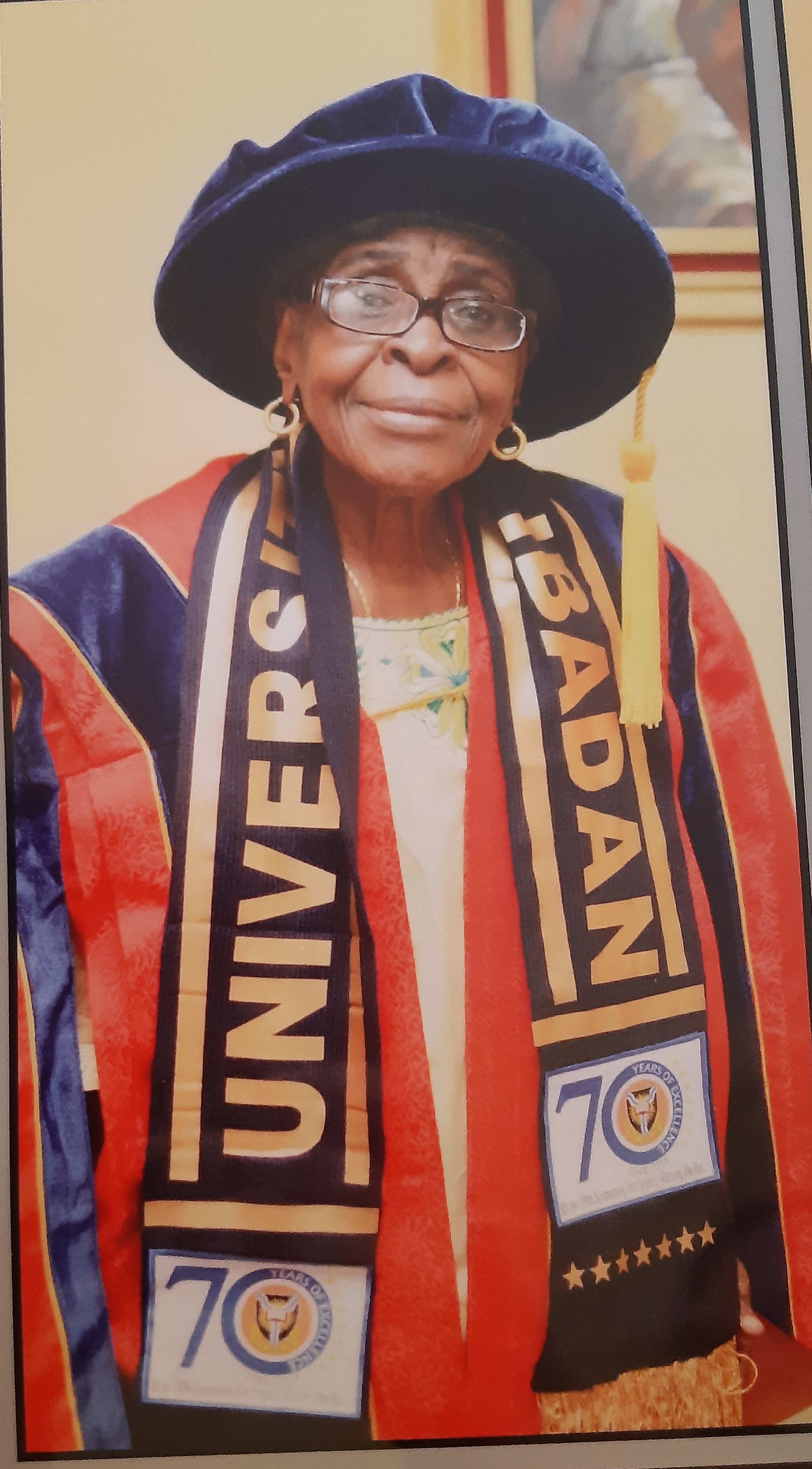A Pioneer Female Historian of Oral History and Women’s Studies in Nigeria
Interview with Professor Bolanle Awe
DOI:
https://doi.org/10.51185/journals/rhca.2022.entretien01Keywords:
gender studies, women's history, Nigeria, nigerian historiography, Bolanle AweAbstract
This interview features Professor Bolanle Awe, a pioneer female historian of Oral History and Women’s Studies in Nigeria. Professor Bolanle Awe looks back at her training as a historian and at some episodes in her academic career. Born in 1933 in Ilesha, a secondary town in South-Western Nigeria, she trained as a historian in the British metropole and taught in Nigeria from 1964 on. This conversation provides a glimpse into the professional trajectory of a woman from the Nigerian intelligentsia whose career as a historian spanned the history of the country from the late colonial period until 1998. This memoir of an exceptional academic trajectory also highlights the reluctant attitude of the largely white British academic community towards students from the colonies as well as the challenges of being a woman in Nigeria academia.
References
AJAYI J.-F. Ade et SMITH Robert Sellers (1971), Yoruba Warfare in the Nineteenth Century, Cambridge, Cambridge University Press.
AJAYI J.-F. Ade (1981), Christian Missions in Nigeria 1841-1891: The Making of a New Elite, London, Longman. ADERINTO Saheed et FALOLA Toyin (2010) « Bolanle Awe. Yoruba and Gender Studies », in Nigeria, Nationalism, and Writing History, Rochester, University of Rochester Press, pp. 142-56.
ADERINTO Saheed et FALOLA Toyin (2010) Nigeria, Nationalism, and Writing History, Rochester, University of Rochester Press.
AGBAJE Adesola Adetutu (1995), « Bolanle Alake Awe: a Biography », MA thesis, University of Ibadan.
ANENE Joseph Christopher (1966), Southern Nigeria in Transition, 1885-1906, Cambridge, Cambridge University Press.
ANENE Joseph Christopher (1970), The International Boundaries of Nigeria, 1885-1960, London, Longman. BIOBAKU Saburi O. (1960), The Origin of the Yoruba, Lagos, Federal Information Service.
AWE Bolanle (1964), The Rise of Ibadan as a Yoruba Power in the Nineteenth Century, thèse, Oxford, Oxford University.
AWE Bolanle (1977), « The Iyalode in the Traditional Yoruba Political System », in A. Schlegel (dir.), Sexual Stratification: A Cross-Cultural View, New-York, Columbia University Press, pp. 144-59.
AWE Bolanle (1977), « Reflections on the Conference on Women and Development: I », Signs, vol. 3, no 1, pp. 314-316.
AWE Bolanle (1988), « Nigerian Women’s Visions and Movements: An Overview », communication présentée à la journée d’étude à la conférence DAWN sur le thème « Africa Regional Meeting on Food, Debt Crises in Relation to Women », Institute of African Studies, University of Ibadan.
AWE Bolanle (1991), « Writing Women into History: The Nigerian Experience », in Karen Offen, Ruth Roach Pierson, et Jane Rendall (dir.), Writing Women’s History: International Perspectives, London, Palgrave Macmillan, pp. 211-220.
AWE Bolanle et alii (1991), « Editorial », Signs, 16(4), pp. 645-49.
AWE Bolanle et MBA Nina (1991), « Women’s Research and Documentation Centre (Nigeria) », Signs, 16(4), pp. 859-64.
AWE Bolanle (1992) (dir.), Nigerian Women. A Historical Perspective, Ibadan, Bookcraft.
AWE Bolanle (1992), « Women and popular participation », communication présentée à la journée d’étude Cowan/Wordoc sur le theme « Women and Popular Participation », Institute of African Studies, University of Ibadan.
ASHAYE Yomi Leon et AWE Bolanle (2016), Nigerian Women Pioneers and Icons, Ibadan, Childsplay Books Limited.
BIOBAKU Saburi O. (1973), Sources of Yoruba History, Oxford, Clarendon Press.
DIKE Kenneth O. (1965), Trade and Politics in the Niger Delta, Oxford, Clarendon.
FALOLA Toyin, « Celebrating Bolanle Awe: The Matriarch of Feminist History », The Punch Nigeria, 9 November 2018.
FELTHAM FORBES Jacob, « How a King's History Student Founded a School of Historical Thought in 1950s Africa », King’s College London, Spotlight on Research, 11 October 2020.
IKIME Obaro (2001), Groundwork of Nigerian History, Ibadan, Heinemann Educational Books. ISIUGO-ABANIHE Ifeoma et alii (dir.), Bolanle Awe: Portrait of an Academic and Activist (1999), Ibadan, Women’s Research and Documentation Centre.
OLAWALE Ronke (2019), Interview with Bolanle Awe, Global Feminist Project.
PANATA Sara (2020), Le Nigeria en mouvement(s) : la place des mouvements féminins et féministes dans les luttes socio- politiques nationales (1944-1994), Ph.D. dissertation, Paris, University of Paris 1.
PERHAM Margery Freda (1962), Native Administration in Nigeria, London, Oxford University Press.
PERHAM Margery Freda (1963) (dir.), Ten Africans, London, Faber and Faber.
PERHAM Margery Freda (1960), Lugard: The Years of Authority, 1898-1945 ; the Second Part of the Life of Frederick Dealtry Lugard, Later Lord Lugard of Abinger, London, Collins.
TAMUNO T.N. (1972), The Evolution of the Nigerian State the Southern Phase, 1898-1914, London, Longman. TREVOR-ROPER Hugh (1963), « The Rise of Christian Europe », The Listener, p. 871.

Downloads
Published
How to Cite
Issue
Section
Categories
License
Some rights reserved 2021 Mutiat Titilope Oladejo, Sara Panata

This work is licensed under a Creative Commons Attribution-NonCommercial 4.0 International License.




